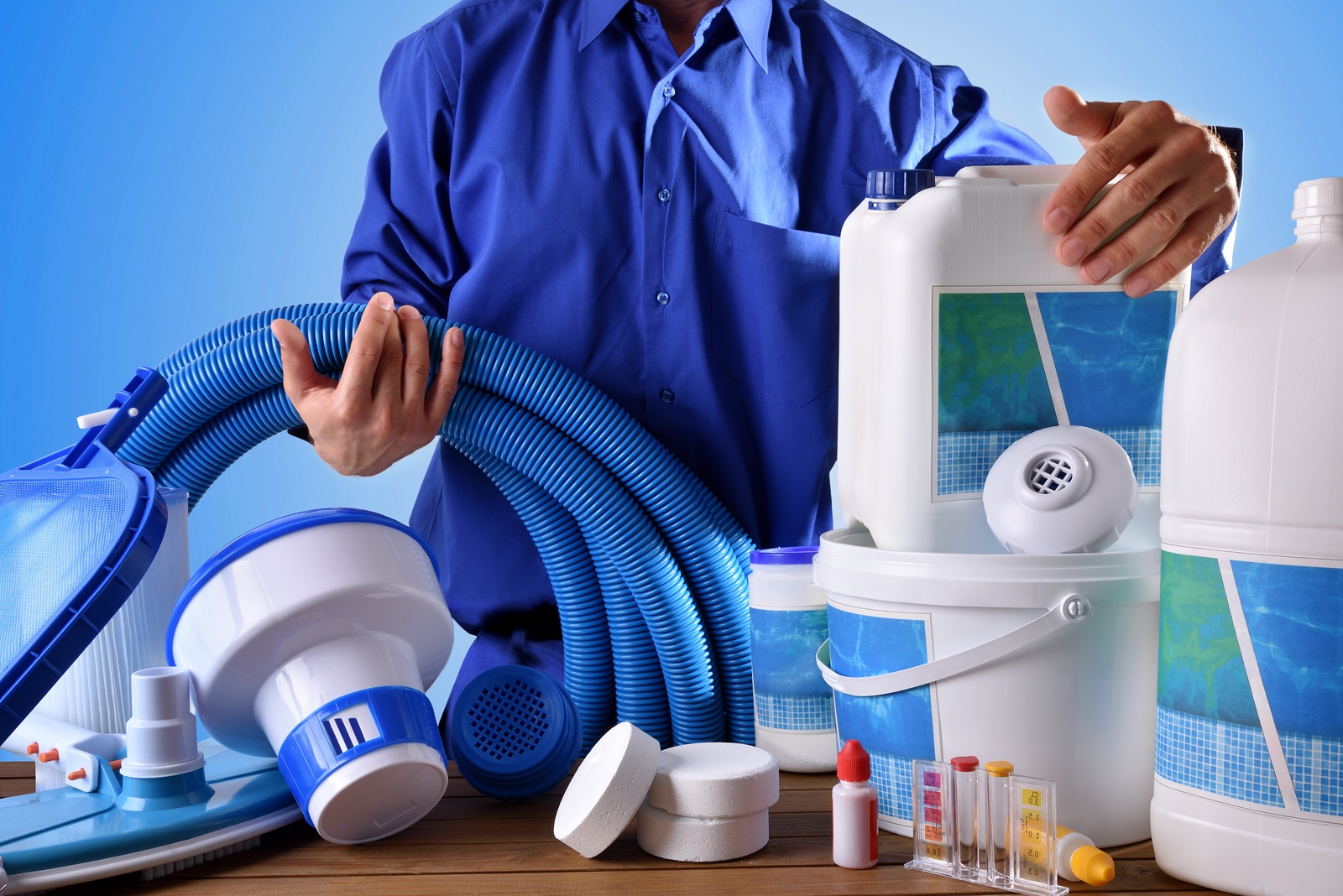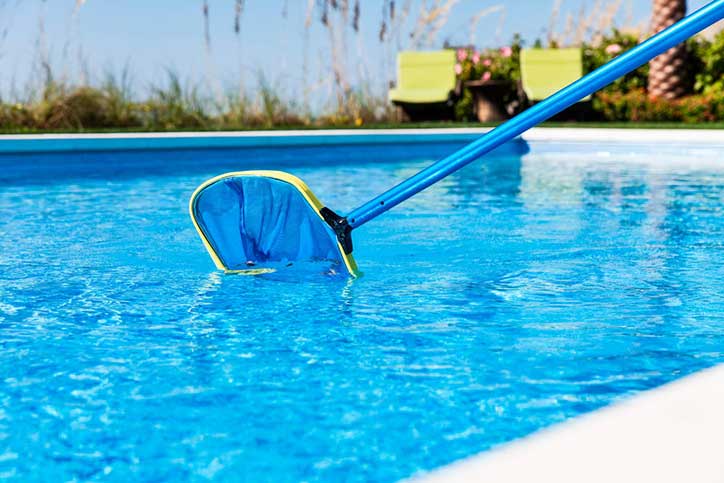Reliable Pool Repair Solutions to Restore Your Pool’s Functionality
Reliable Pool Repair Solutions to Restore Your Pool’s Functionality
Blog Article
Important Swimming Pool Upkeep Tips to Maintain Your Water Sparkling Clean
Preserving a pristine pool needs an organized technique to water treatment and cleanliness, which inevitably adds to both the aesthetic allure and long life of the pool itself. Sticking to these basic methods not just enhances the clearness of your swimming pool water yet also safeguards versus prospective problems that might rise right into pricey fixings.
Test Water Chemistry Regularly
To ensure a delightful and safe swimming experience, on a regular basis evaluating water chemistry is vital. Appropriate water balance not just improves swimmer convenience yet also protects swimming pool equipment and surface areas. The main chemical parameters to monitor include pH, chlorine degrees, alkalinity, and calcium firmness.
pH degrees should be preserved between 7.2 and 7.8, as this range decreases skin and eye inflammation while enhancing chlorine efficiency. Chlorine degrees need to ideally be between 1-3 components per million (ppm) to give ample cleanliness without causing unpleasant smells or irritation. Overall alkalinity, which works as a buffer for pH, ought to be maintained between 80-120 ppm to maintain water chemistry and prevent changes.

Maintain the Swimming Pool Filter Clean
Keeping proper water chemistry is only part of efficient pool treatment; maintaining the swimming pool filter clean is similarly vital for ideal efficiency. The pool filter plays an important function in removing debris, dirt, and impurities from the water, ensuring a enjoyable and secure swimming setting. In time, filters can end up being obstructed with fragments, which can dramatically lower their performance.

Furthermore, monitor the pressure gauge on your filter system. A pressure rise of 8-10 psi over the typical operating array commonly suggests that it's time for cleaning. Disregarding to maintain a clean filter can cause bad water blood circulation, unbalanced chemistry, and raised strain on the pool pump, ultimately resulting in higher power expenses and possible equipment failure.
Skim and Brush Often

Cleaning the swimming pool wall surfaces and floor is equally critical. Utilize a pool brush with a suitable bristle type for your swimming pool surface-- nylon brushes for plastic or fiberglass swimming pools, and stainless steel for plaster or floor tile surface areas.
Maintain Correct Water Degrees
Keeping the swimming pool surface clean via regular skimming and brushing considerably adds to total water top quality, yet keeping proper water degrees is equally important for optimum pool health. The water degree in your pool ought to preferably go to the midpoint of the skimmer opening. This makes certain that your skimmer can efficiently get rid of debris and drifting pollutants, protecting against build-up that can endanger water clarity and quality.
Low water levels can result in pump damage, as the pump may run completely dry, taking the chance of costly repair services. Alternatively, exceedingly high water levels can create water to overflow, weakening chemical balances and producing an unattractive mess. Frequently examine your swimming pool's water level, specifically after hefty rains or significant evaporation due to warm.
In enhancement, consider aspects such as pool use, environmental problems, and the kind of water functions in your pool, as these can affect water levels. Mounting a swimming pool cover can assist decrease evaporation and maintain a steady level if you discover yourself consistently battling changing water degrees. Inevitably, routine surveillance and modification of water levels will help make certain a healthy and balanced swimming setting and lengthen the life of your pool devices.
Schedule Seasonal Upkeep
Understanding the importance of seasonal upkeep is important for guaranteeing your pool stays in optimal problem year-round. Each period brings special challenges and conditions that can influence the water high quality and architectural integrity of your pool. By scheduling maintenance jobs regularly, you can avoid minor issues from rising into costly repair services.
In the springtime, concentrate on opening up the pool, examining the purification system, and balancing the chemical degrees. This establishes a solid foundation for the swimming season - Pool Inspection. As summer season methods, routine maintenance such as skimming particles, brushing surface areas, and tracking water degrees ends up being vital to maintain sanitation and security
As fall shows up, prepare for cooler temperature levels by removing fallen leaves and debris, and consider winterizing your swimming pool if it will not be used throughout the chillier months. This includes decreasing water degrees and adding winterizing chemicals to secure versus cold.
During the winter season, regular checks on the swimming pool cover and devices are necessary to make certain whatever remains undamaged. By adhering to a seasonal upkeep timetable, you can expand Pool Inspection the life of your pool and maintain it welcoming and secure for usage year-round.
Conclusion
Routine swimming pool upkeep is important for guaranteeing water quality and safety and security. By continually evaluating water chemistry, maintaining the pool filter in optimal condition, and performing routine skimming and cleaning, pool proprietors can efficiently protect against algae development and other problems.
By maintaining correct water chemistry, pool owners can make certain a risk-free environment, extend equipment life, and enhance overall satisfaction of their swimming pool.
Keeping correct water chemistry is only component of efficient swimming pool treatment; maintaining the swimming pool filter clean is just as important for optimum performance. Utilize a pool brush with an appropriate bristle kind for your pool surface-- nylon brushes for vinyl or fiberglass pools, and stainless steel for plaster or tile surfaces.
Keeping the swimming pool surface area tidy with regular skimming and brushing considerably adds to general water quality, however keeping appropriate water levels is just as important for optimum swimming pool wellness.In enhancement, take into consideration aspects such as pool usage, ecological conditions, and the kind of water attributes in your swimming pool, as these can affect water degrees.
Report this page